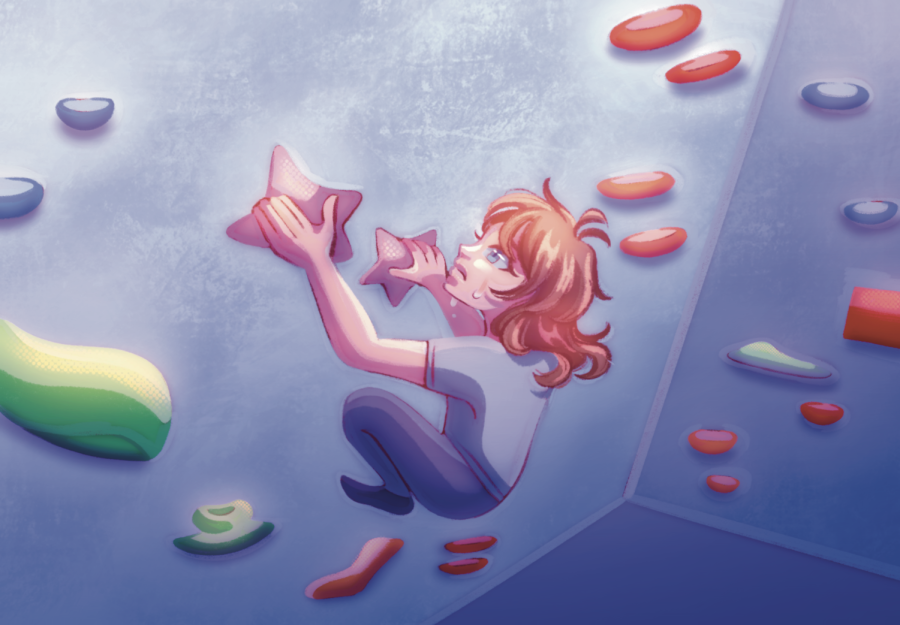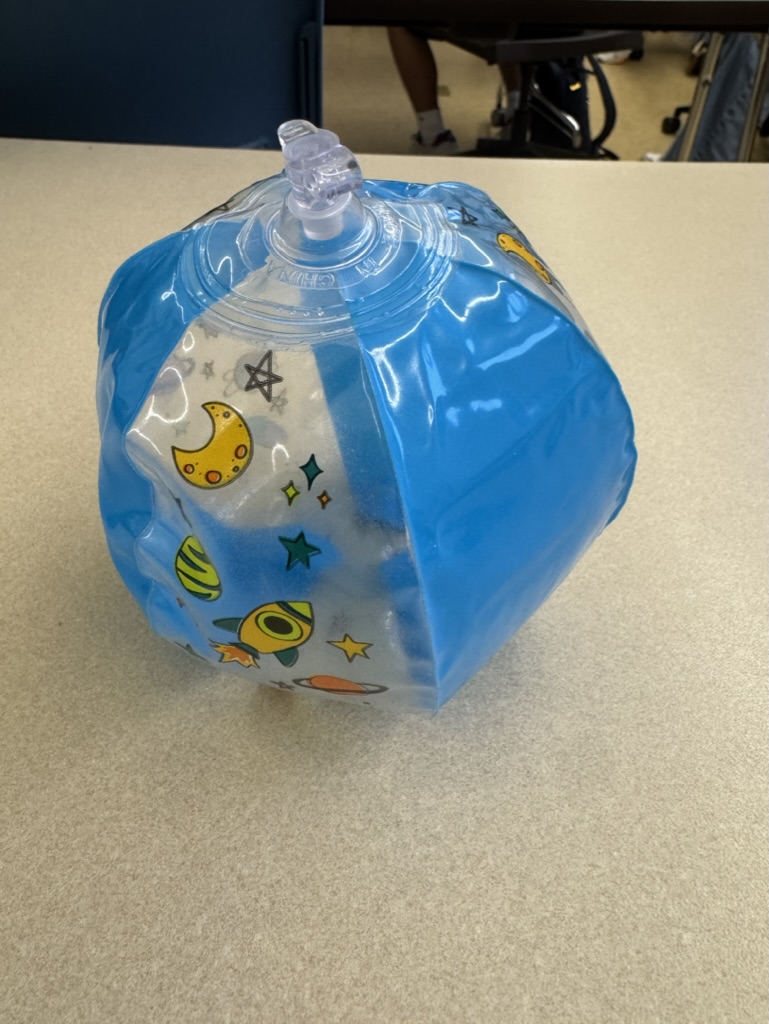Scaling insecurities: overcoming imposter syndrome through climbing
May 5, 2023
Clinging onto the rough hold of a jug, I struggle to secure my rope to the carabiner above. My hands sweat as the rope slips out of the safety clip attached to the wall. My arms begin to lose traction on the hold as the strain of gripping on for too long overpowers my strength.
At last, I close my eyes and let go of the jug. As I feel the rebound of the rope pulling on my harness, I feel a wave of shame seep through my body because I didn’t make it to the top of this fairly easy climb.
I peer down to see my teammates gazing up at me, but a second later they look away and continue their conversations with one another. My coach shouts out a fleeting “Good job,” but I feel the shallow words of encouragement wash over me. I feel a pang of guilt as I am on an advanced rock climbing team, and couldn’t even finish the climb. I let my team down and gave them one more reason to question why I’m even on this team.
Ever since I was accepted into Movement gym’s advanced rock climbing team, I feel like an outsider. In comparison to my teammates who have been climbing for well over a decade, I possess a mere fraction of their experience. Not only that, but they surpass me in technique, from a better sense of balance to body positions on the wall. Although I love this sport and my team to death, I can’t shake off the feeling that I don’t belong.
It turns out this feeling is known as imposter syndrome, characterized by the Merriam-Webster Dictionary as doubting one’s abilities or accomplishments paired with the fear of being exposed as a fraud despite evidence of success.
Despite these feelings of self doubt, I have made tremendous improvements since I first mounted a climbing wall with trembling hands. At first, I could barely make it a couple feet off the ground before my fear of heights overwhelmed me, but now I am just as strong as my teammates and am able to find unique ways to solve problems others don’t see.
Although I feel proud for achieving so much in such a short time, I can’t help but notice that I am still way behind my teammates. This fact has caused a wave of panic in me any time we do climbing challenges, as I immediately assume I won’t perform as well as them. This stifling mentality began to hold me back as I started to give up before I had used all my energy and doubted myself in the middle of climbs.
I came to the conclusion that I either needed to quit the team or resolve my mental block.
Realizing I would be giving up something I loved and I had worked hard for, I decided to find a solution.
First, I approached my coaches about my mental state. They offered me helpful insight into why I was feeling this way and what I could do to build up
my confidence.
The most important lesson they taught me was to step back and acknowledge my progress. When put into perspective, I was surprised to find my achievements were impressive. I had made significant advances and was fully deserving of being on the team despite my negative thoughts.
The advice to step back is a useful strategy that can be applied to all kinds of situations. Any time you feel like you don’t belong or aren’t worthy of something, it is important to look at yourself from a fresh perspective and reevaluate your progress.
For example, when attending a rigorous and competitive school like Paly, it can be hard to not compare yourself to others. Students easily lose perspective of how far they have come and fall into a pit of self doubt.
So, by changing my mindset, I finally began to relax on the wall and let my brain turn off from stress at school. Of course, I still beat myself up when I fall off the wall, but I am now able to identify when I begin thinking this way.
In addition, my coaches have taught me strategies to improve my success on the wall, such as planning out how I will climb a specific route or finding places on the wall to rest so that I can conserve my energy and keep going.
So any time you find yourself doubting your capabilities, remind yourself of your achievements. You most likely will find you are much more impressive than you give yourself credit for.







